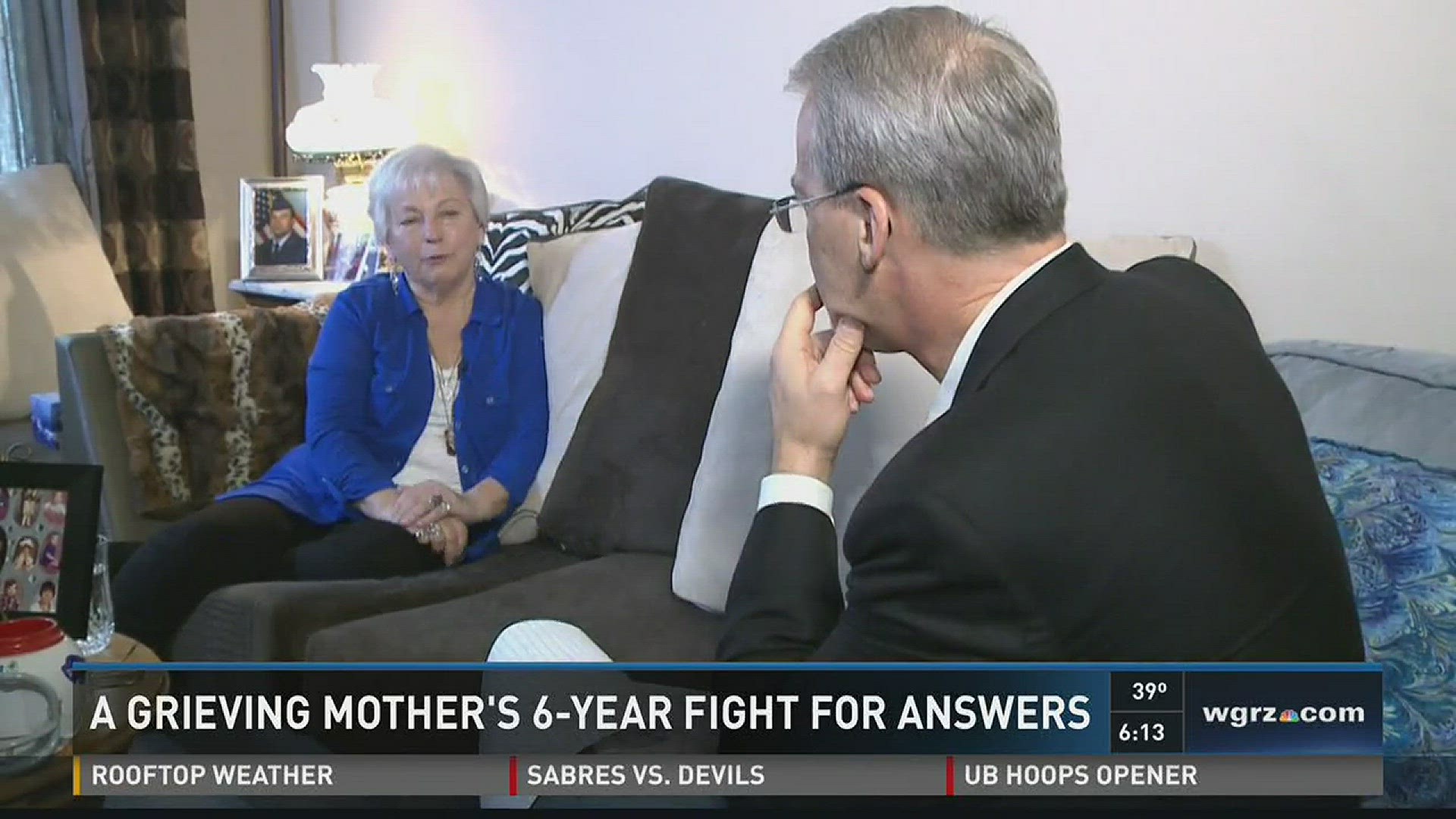Lynn Grotke has a deep wound that time has not healed.
"A lot of people have said to me, 'Just let it go. You're not going to get anything. You should just let it go.' And I'm like, 'How do I let it go? I need answers. That's my first born son."
Technical Sergeant Joshua Grotke, a 16-year veteran of the US Air Force died of a self-inflicted gunshot wound just three days after Thanksgiving 2010.
And Lynn fights back tears saying, "And the hardest thing is he died not talking to me."
The two had had a falling out long before.
No phone calls.
No visits.
No contact.
So, in her grief Lynn started collecting every piece she could about her son's suicide, spending much of the last six years extracting page after page from the Air Force. They didn't make it easy for her. Often she'd have to petition for documents much like journalists have to do through the Freedom of Information Act. What she's collected fills a couple expandable folders.
"What would really help is if they would admit that they made a lot of mistakes in dealing with this and that they're doing it all the time, still," says Lynn.
An American serviceman or woman is 20-to-25% more likely to commit suicide than a US civilian. The rising demand of mental health services in the military prompted the Veterans Administration to made sweeping changes at its hospitals.
"Twenty-four-hours a day, seven days-a-week, we have mental health services available in our emergency room. Any individual can come into our emergency room and meet with a mental health professional, on the spot," says Jill Murray, who is a supervisor of behavioral health at WNY's VA facilities.
The last six years of Josh Grotke's life was spend at Seymour Johnson Air Base in North Carolina. When he arrived, he came with his second wife and their children. In 2008, Josh was sent to African for 8-months. When he return, the house was empty. His wife and kids were gone.
On top of his collapsing marriage, Josh had apparently been taking a rather long list of prescription medications. Lynn unearthed the document showing all his filled prescriptions going back years. But Air Force produced no documents or explanations about Josh's diagnosis.
After sharing the list of medications with Dr. Robert Wahler, assistant professor at U-B's School of Pharmacy, he concluded it was likely Josh was being treated for depression and anxiety, possibly also Post Traumatic Stress Disorder.
But Dr. Wahler says the medications may not have been effective.
"It looks like in this case, the treatment didn't completely relieve his depression because I can tell there's been a series of different anti-depressants over time," said Wahler.
Documents from the Air Force's investigation into Josh's death also revealed he's been hospitalized at Walter Reed for "mental disorders". And in 2003, there had been a previous suicide attempt Lynn had never heard about.
Also in the exhibits of the Air Force probe, three statements. Each had the name of person questioned blacked out. Clearly they were Air Force members, possibly even superior officers who worked with Josh. All three stated they had no knowledge of Josh's mental health struggles until after his death.
Lynn Grotke doubts that. She also thinks the Air Force is hiding something.
"I think they're going to keep losing good people to suicide if they don't wake up and start facing it."

